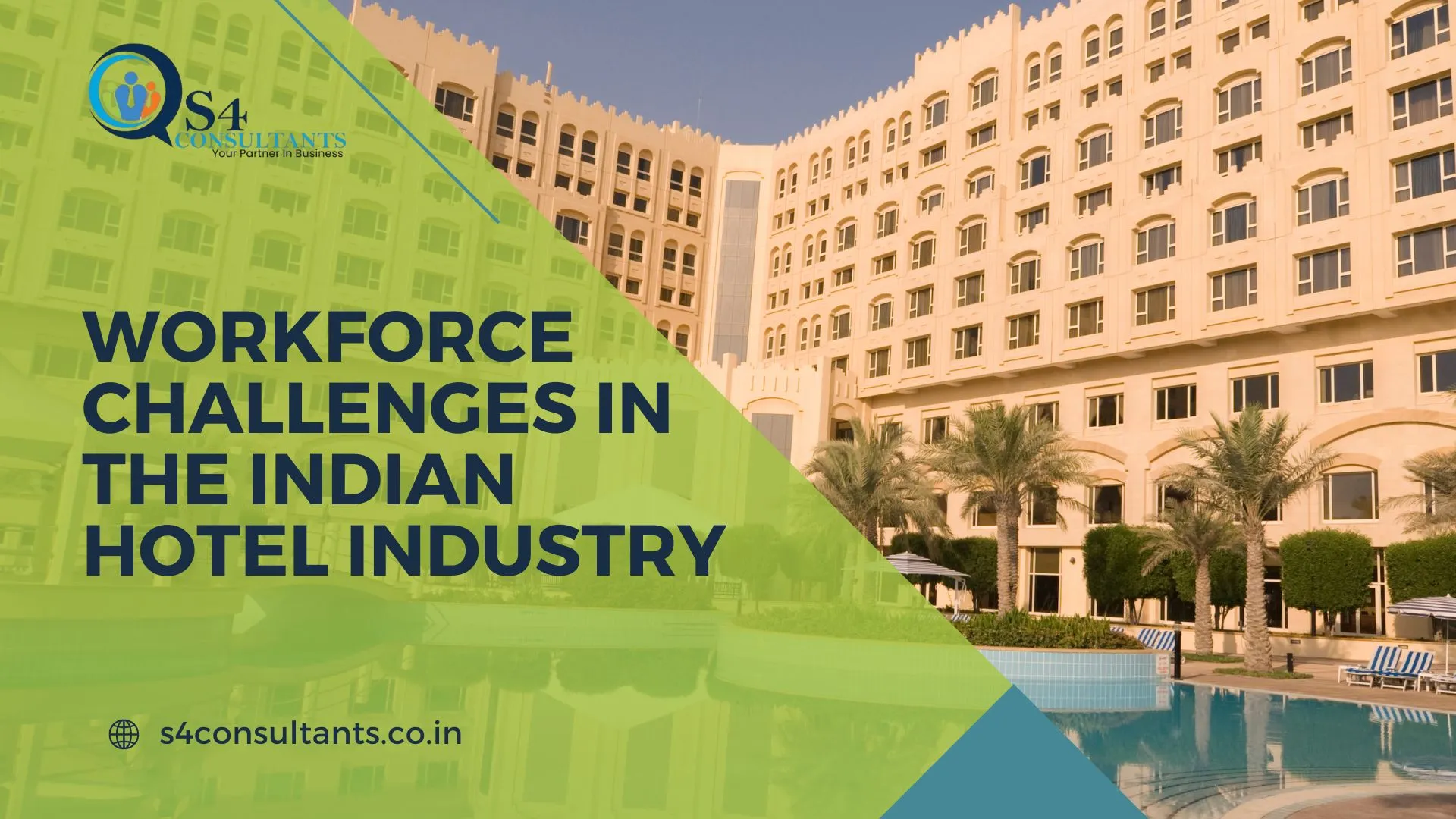Food Safety Compliance: Latest Guidelines and Implementation Strategies
September 26, 2025

The hospitality industry is a cornerstone of India’s tourism sector, directly influencing guest satisfaction and operational efficiency. However, workforce challenges remain persistent obstacles for Indian hotels. From high turnover rates to skill gaps, the industry faces unique workforce challenges in the Indian hotel industry that impact growth. Understanding these workforce challenges and implementing solutions can help hotels stay competitive in 2024 and beyond.
Employee turnover is a significant issue facing the hospitality industry, with many trained staff moving to sectors offering better hours and wages. High attrition rates often disrupt operations and increase recruitment costs, impacting service quality. The intense, round-the-clock nature of the hospitality industry, paired with limited opportunities for rapid advancement, discourages employees from long-term careers in hospitality.
Hotels can mitigate high turnover by fostering career growth opportunities and recognizing employee contributions. Competitive salaries, comprehensive health benefits, and training can help retain talent. Initiating employee engagement programs to boost job satisfaction and allow more flexible schedules also reduces turnover. Employees feel valued and are less likely to seek employment elsewhere.
Many Indian hotels face skill gaps, especially in regions where experienced and educated staff are scarce. The demand for specialized knowledge in hospitality roles often surpasses the availability of qualified candidates. As a result, hotel operators struggle to provide high-quality service and meet guest expectations, leading to inconsistent guest experiences. This growing skills shortage amplifies the workforce challenges of the hospitality industry in India, affecting service standards across various regions.
Hotels can address skill shortages by collaborating with hospitality schools to create programs that teach practical, industry-specific skills. Investing in continuous training for both existing and new employees can close skill gaps. This approach not only improves service standards but also builds employee loyalty by giving staff valuable growth opportunities. Internal training programs focusing on customer service, digital skills, and technical knowledge are also effective.

Compliance with licenses and regulatory requirements can be time-consuming and costly for hotels, as each state has specific laws. From safety compliance to operational standards, the compliance burden often delays project timelines and increases administrative costs. Navigating these varied regulations is a constant challenge for hotel consultants in India.
Hotels can partner with industry associations or hire specialized consultants who understand the regulatory landscape to streamline this. Simplifying compliance through updated digital tracking and focusing on industry transparency can reduce administrative efforts. Industry associations could advocate for uniform standards across states, alleviating many compliance challenges for hotel operators.
Adopting technology in hospitality, from automated check-ins to AI-driven customer service, has disrupted traditional roles. While technology improves efficiency, some staff members view automation as a threat, leading to resistance or uncertainty about the future of their positions. The current issues in the hospitality industry in 2024 reflect this technology-driven change.
Instead of replacing staff, hotels should use technology to enhance employee productivity and guest satisfaction. Training staff on new systems can ease the transition while emphasizing technology’s supportive role can reduce resistance. This approach reassures employees that their skills are essential in complementing tech solutions, ensuring smooth, high-quality guest experiences.
Managing costs while maintaining workforce quality is a delicate balance, as wages, training expenses, and operational needs compete for funding. Financial constraints can hinder hotels from providing competitive compensation, limiting their ability to attract and retain skilled staff, a key challenge faced by the hospitality industry in India.
To achieve a cost-effective balance, hotels should prioritize strategic spending, focusing on programs that boost employee performance and satisfaction. Creating performance-based incentives motivates employees while effectively managing payroll costs. Streamlining operations and reducing overhead expenses also allow hotels to reallocate resources to enhance workforce quality without sacrificing guest satisfaction.

Employee burnout in the hospitality industry is a widespread issue driven by long hours and the high demand for personalized service. Burnout results in lower productivity and increased absenteeism, directly impacting the guest experience. Many employees experience mental and physical exhaustion, leading to disengagement and higher turnover.
Hotels can establish mental health support services to address burnout and ensure that employees can access adequate rest breaks and paid time off. Creating a positive work environment that prioritizes employee well-being through flexible scheduling and team-building activities also reduces burnout. Recognizing and rewarding employees for exceptional performance fosters a supportive work culture, helping alleviate burnout.
Read Also: Planning to Start a New Cafe in India? Read This Now!
With the rise of luxury and boutique hotels, guest expectations for personalized service have surged. This demand places additional pressure on hotel staff to deliver unique, memorable experiences, often without adequate resources or training to meet these standards.
Preparing employees to meet high guest expectations involves advanced customer service training and empowering staff to make service decisions on the spot. Providing tools and training in empathy, attentiveness, and personalized service can significantly enhance the guest experience. Additionally, management should ensure that employees have access to resources and time necessary to fulfill guest needs promptly and effectively.
Addressing workforce challenges is essential for hotels aiming to deliver superior service and remain competitive. High turnover, skill gaps, regulatory burdens, and burnout are pressing issues that, if left unresolved, can hinder growth. Through proactive solutions—like comprehensive training, fair compensation, and strategic use of technology—hotels in India can overcome these challenges and foster a skilled, motivated workforce ready to meet the demands of modern hospitality.

September 26, 2025

September 4, 2025

December 23, 2024

© Copyright 2026 Consult S4 Consultant, Designed by That Rank thatrank.com

